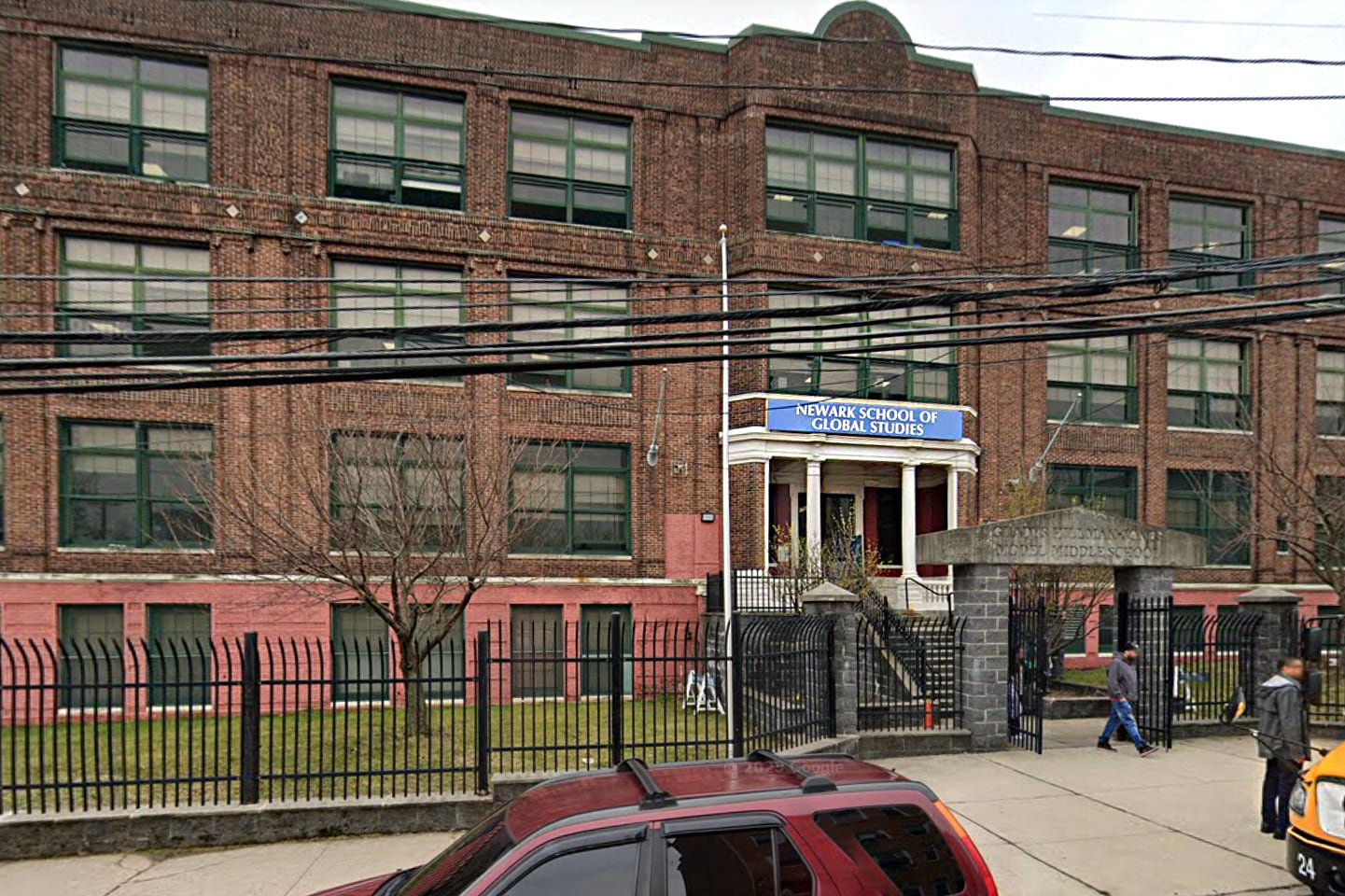Sign up for Chalkbeat Newark’s free newsletter to keep up with the city’s public school system.
When Newark’s School of Global Studies first opened three years ago, it was hailed as an international-themed magnet high school that would value diversity and encourage students to engage with other cultures and global issues.
Instead, over the last year, students and teachers have come forward to describe a pattern of racist harassment on campus that led students to transfer out midyear because they felt the district failed to handle their situation. Teachers claimed they suffered “unlawful and unreasonable treatment” at the school, forcing them to resign.
Superintendent Roger León promised to fix the issues, but he has not been forthcoming about his plans to tackle racial harassment on campus or changes made at the school since the issues came to light.
Tensions between the community and the district have grown over the last year due to the lack of solutions and transparency on the issue. Now, the school community ends the year with continued demands for justice for students, and it still wants the district to release the scathing report on the cultural dynamics at the Newark School of Global Studies.
“We need the findings to be made public,” said Deborah Smith-Gregory, president of NAACP Newark, at the school board meeting on Tuesday, referring to the report. “We can’t fix what we don’t know.”
Earlier this year, León said that the report, which was commissioned by board members nearly a year ago, would not be released publicly despite requests from board members and public records requests from Chalkbeat.
“People not having the report in their hands doesn’t mean that there isn’t work … occurring” at the school, León said at the meeting Tuesday. He also pointed out that a few recommendations from the report have already been addressed publicly.
But despite the continued calls for more transparency, the report remained under wraps this week.
The situation began when a group of Black students from the school spoke out at a board meeting in November 2022 about the ongoing racial harassment they said they experienced on campus. The issues drew heavy criticism from the community about the way the school and district leaders handled the situation.
Over the last year, half a dozen Black students transferred out of the high school. An analysis of the school’s cultural dynamics was completed and recommendations to fix the problems were provided to the district. Two Black teachers resigned and filed legal claims over a hostile work environment, and the school’s vice principal Hoda Abdelwahab, who was at the center of complaints, also resigned. Most recently, the Newark Teachers Union filed a lawsuit over the public release of the report.
A year later, district plans remain unclear
The frustration has been building since November 2022, when León and school board members listened intently as one student described being called a “smart chimpanzee” in his English class because of the color of his skin. Another said his friend’s hijab was pulled off while they were walking in the hallway. Others later described how they were called “the n-word, a slave, a caricature.”
Mayor Ras Baraka visited students in December 2022 to discuss the issues but did not provide solutions for students. León also visited the students, and at the time, asked if they would like a basketball team at the school, further frustrating them. Emails obtained by Chalkbeat Newark showed that school and district leaders had known about the issues months before.
Students and parents complained to León, principal Nelson Ruiz, Abdelwahab, and other school leaders begging for an end to the ongoing harassment and demanding stronger consequences for students who used derogatory language.They would later describe an administration that wasn’t taking the situation seriously enough, and they called for Ruiz’ removal.
In January, student testimonies prompted school board members to hire Dr. Lauren Wells and her firm, CREED Strategies, to examine the cultural, racial, and religious dynamics at Global Studies and provide recommendations to fix the issues. The review was the first mention of the district’s long-awaited plan to mend problems at the high school after the incidents came to light.
That same month, nearly half a dozen Black students transferred out of the school, including the Black Student Union president and school board vice-president Dawn Haynes’ daughter, who spoke at December’s school board meeting about the racial and religious harassment she experienced before transferring during her junior year.
In March, Baraka hosted a town hall event to discuss unity among Black and brown communities and invited Global Studies students to speak about their concerns.
Over the summer, León shared limited details about the school’s cultural report during a press conference. He offered no insight on the report, which he said would serve “as an internal document” for the district to consider. León also said the report was meant to help the district design a strategy to tackle racial issues in city schools but details about that plan have not been made public.
Legal battles mount for transparency into Global Studies incidents
In more recent months, community leaders repeatedly attended school board meetings to demand the release of the Global Studies report. Others continue to press the district to create a plan to prevent the problems from happening again or at other schools.
The district is also facing mounting pressure from former educators. In August, two former English teachers at the school filed legal claims against the district alleging they suffered “severe emotional problems” that led them to seek psychological counseling after experiencing harassment and racial hostility by students and supervisors. The filings could lead to a lawsuit, said their lawyer, David Balk.
In September, Newark Public Schools released three recommendations from the Global Studies report that call on the district to assess the effects of “anti-Blackness” on the school system and foster conversations about racial issues. In addition to the recommendations, principal evaluations were changed to include “equity indicators” and base performance on their school’s climate.
Haynes, who privately read the full report in September when it was made available to board members said it was “traumatizing to read.”
During a school board meeting last month, a year after the students first raised concerns, member Crystal Williams said she expected an update about the changes at the school over the last year and raised questions about the school’s progress. Over the last several months, board members have asked León to provide the public with answers.
“What does the diversity in this school look like? What is the climate like? What is student life like in this building right now?” Williams asked.
Also during that meeting, member A’Dorian Murray-Thomas said the district needs to be “firmer and clearer” on its plans for the sake of students. Board member Allison James-Frison said she continues to “look for justice for those kids.”
“I think more should be done and I hope there’s a day that this report will be released,” said James-Frison at last month’s meeting.
Without knowing what the report says, it’s unclear the extent of how the situation affected teachers, said John Abeigon, the Newark Teachers Union President, last month. In November, his union filed a lawsuit against the district for the release of that report.
The union’s lawsuit is the first court battle to unlock the findings of the Global Studies report and its recommendations. Previously, the district received public records requests for the report, including two filed by Chalkbeat Newark, but denied those requests.
Jessie Gomez is a reporter for Chalkbeat Newark, covering public education in the city. Contact Jessie at jgomez@chalkbeat.org.





